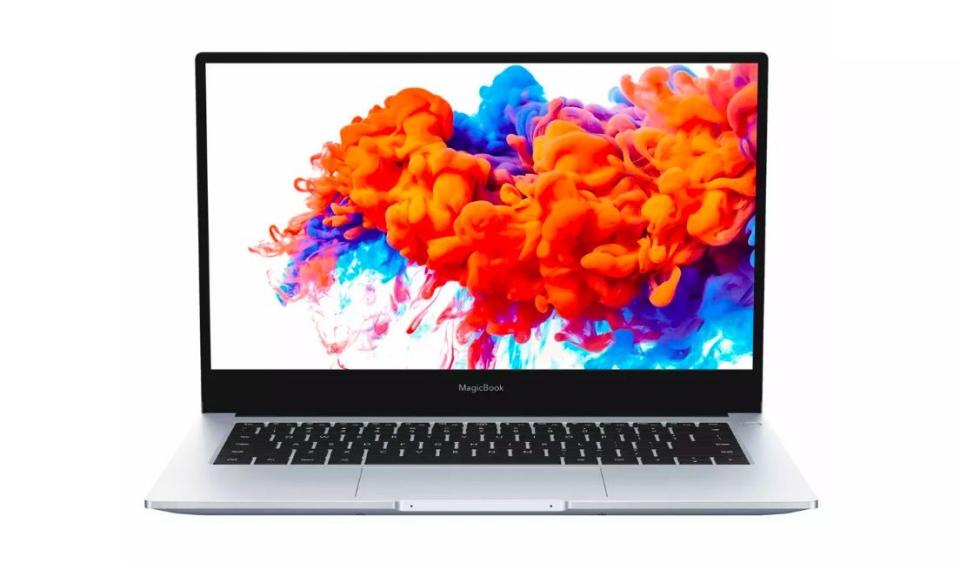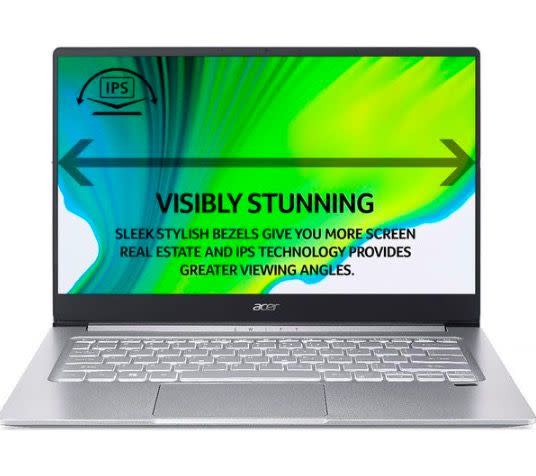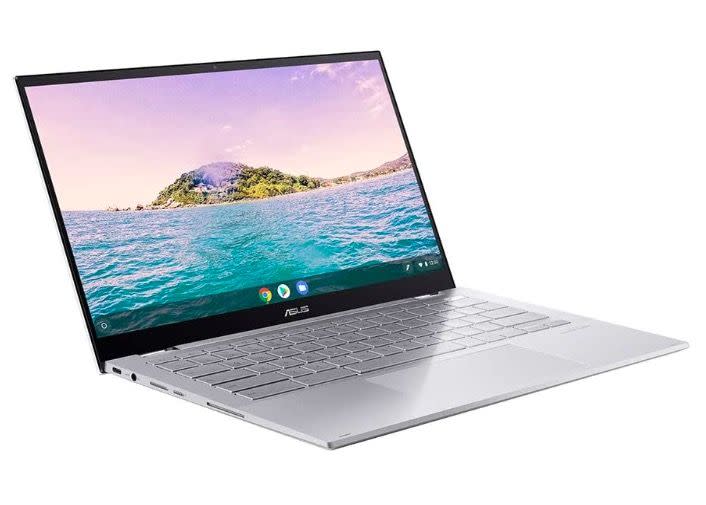13 best laptops for students, whatever your needs

Buying a computer for uni/college/school work is a big investment, so it's important to make sure you're getting the best laptop for students possible. This means considering everything from your budget, the screen size and resolution to the central processing unit (sounds complicated, but is v important!) and its software.
Whether you’re heading off to uni or will be busy working from home, it’s worth spending money on a trusty laptop that won’t let you down the night before a big deadline.
This guide will talk you through the need-to-knows before buying and recommend the best laptops for students currently on the market.
Just want us to cut to the chase? Here are our top choices:
Best cheap laptop: Acer Chromebook Spin 311
Best Windows laptop under £300: Acer Aspire 3 A315-22
Best Chromebook under £300: Acer Chromebook 314
Best laptop under £700: Honor Magic Book 14
Best laptop under £1000: Apple Macbook Pro 13in
Best high-end laptop: Microsoft Surface Book 3
Best laptop for taking to lectures: Samsung Galaxy Ion
Best laptop for video/photo editing: Macbook Pro 16in
Best laptop for watching Netflix: LG Gram 17Z90N
Best laptop for essay writing: ASUS Chromebook Flip C436FA
Best laptop for storage: Acer Swift 3 SF314-42
Best laptop for an all-nighter: Acer Chromebook Spin 13 CP713-1WN
Best laptop for security features: Acer Chromebook 714
How do I choose a laptop?
Laptops range in price from £250 to over £4,000 (!), so it’s important to find one that suits your needs and budget. The final choice boils down to personal preference based on how you plan to use your computer.
If you’ll be carrying your laptop between lectures, look for something lightweight with a long battery life, or try a laptop-tablet hybrid. If you do a lot of video or photo editing, you’ll need a pricier, more powerful machine than you would for writing essays.
What is the best laptop?
The operating system - essentially the brains of a laptop - is your first decision when picking the best laptop for you. It controls how web browsing, apps and programs are run and seen on the screen. The three operating systems available - Microsoft Windows, Apple’s macOS and Google’s Chrome OS - all have different pros and cons...
Microsoft Windows is the most widely used operating system, so you’ll probably already be familiar with it, especially if you’ve used PCs at school.
macOS is Apple’s operating system and hooks up with other Apple products like iPads and iPhones, but you won’t find a MacBook for less than £1,000 (sob, we know).
Chrome OS is found on Chromebooks and only runs web apps like Google Docs, with all files saved to the cloud for online-access only. This means ChromeBooks have far less built-in storage space, making them cheaper, but note that you can only download programs from the Chrome Store (meaning no iTunes!) and Photoshop won’t run on it.
What should I check before buying a laptop?
The nitty gritty, techy-sounding stuff may be boring AF, but all that chat about RAM and processors tells you how powerful your laptop will be - i.e. how likely it is to freeze on you in the middle of an all-nighter. So, just quickly...
The central processing unit, or CPU, runs the operating system and all your applications. In general, the faster the CPU, the faster your laptop will run, the quicker its battery will drain and the heftier its price tag.
RAM means random access memory and, again, this affects how fast your laptop runs. Make sure your laptop has enough RAM (at least 8GB) to stop you throwing your machine against a wall in frustration.
When it comes to screen resolution, the higher the number of pixels, the clearer and more detailed your display will be. Note that bigger screens don’t necessarily boast better resolutions.
Student discounts
Microsoft and Apple offer discounts on laptops, tablets and tech for uni students.
Microsoft is taking between £100 and £440 off the price of a number of laptops, including the Surface Laptop 3, the Surface Pro 7 and the Surface Book 3 (found below). Students can also pick up the Education version of Office 365 for free.
Meanwhile, Apple fans can get up to £280 off a Mac and bag a free pair of AirPods until the start of October!
How we test laptops
We rigorously tested all the below laptops, judging them on how quickly they booted up and completed key tasks. We assessed the sound quality of the speakers and noted how quickly the battery drained while playing videos. The keyboard, trackpad, webcam and any pre-installed software were trialled for reliability and usefulness, too.
Best laptops under £300
Best Windows laptop under £300
Pros: Large screen (15.6 inch), loads of storage (1TB), BlueLightShield technology (reduces eye strain when staring at a screen for ages)
Cons: Short battery life (6 hours), heavy (1.9kg)
Best cheap laptop
Pros: Converts into a tablet, large screen (11.6 inch), compact, fairly lightweight (1.5kg), touchscreen, long battery life (10 hours), impact-resistant, spill-proof keyboard
Cons: 32GB storage (but you can store files online), not a FullHD screen
Best Chromebook under £300
Pros: Large screen (14 inch), long battery life (12.5 hours), fairly lightweight (1.5kg)
Cons: 32GB storage (but you can store files online), slow to transfer files
Best laptops under £700

Honor Magicbook 14
argos.co.uk
£499.99
Pros: Large screen (14 inch), ultra-slim, lightweight (1.38kg), anti-glare, lots of storage (256GB), long battery life (10 hour), pop-up webcam, can wirelessly transfer files with Honor phones
Cons: Struggles with intensive tasks like video editing
Best for security features
Pros: Large screen (14 inch), ultra-slim, long battery life (10 hours), fingerprint sensor, lots of storage (128GB), touchscreen
Cons: Heavy (1.6kg)
Best for an all-nighter

Acer Chromebook Spin 13 CP713-1WN
Argos.com
£699
Pros: Large screen (13.5 inch), converts into a tablet, fairly lightweight (1.5kg), long battery life (13 hours), lots of storage (128GB), touchscreen, comes with a stylus
Cons: Bulky when converted into a tablet
Best laptops under £1,000
Pros: Large screen (13.3 inch), long battery life (10 hours), lightweight (1.37kg), ultra-slim, lots of storage (128GB), Touch Bar technology, True Tone technology (automatically adjusts brightness to suit environment)
Cons: Expensive for the spec, no touchscreen
Best for storage

Acer Swift 3 SF314-42
currys.co.uk
£799
Pros: Large screen (14 inch), lots of storage (1TB), extremely lightweight (1.2kg), ultra-slim, powerful
Cons: No touchscreen, average battery life (8 hours)
Best for essay writing

ASUS Chromebook Flip C436FA
amazon.co.uk
£899
SHOP now
Pros: Converts to a tablet, large screen (14 inch), lots of storage (256GB), ultra-slim, powerful, keyboard adjusts to different angles
Cons: Only has two USB ports, slow to transfer files
Blow the budget laptops
Best high-end laptop
Pros: Converts to a tablet, large screen (13 inch), very powerful, touchscreen, lots of storage (512GB), facial recognition and Instant On means it unlocks in seconds
Cons: Very expensive, display suffers from fingerprint marks and glare in bright light
Best for video/photo editing
Pros: Large screen (16 inch), lots of storage (1TB), stylish, powerful, Touch Bar technology
Cons: Very expensive, no touchscreen
Best for taking to lectures
Pros: Large screen (13.3 inch), very lightweight (1kg), powerful, syncs to Galaxy smartphones, lots of storage (512GB), fingerprint sensor
Cons: No touchscreen
Best for watching Netflix
Pros: Very large 4K screen (17 inch), super-long battery life (17 hours), lightweight (1.35kg), powerful, full-size keyboard, lots of storage (512GB), fingerprint sensor, impact-resistant
Cons: No touchscreen
Consider your next laptop, sorted.
Like this article? Sign up to our newsletter to get more articles like this delivered straight to your inbox.
You Might Also Like

